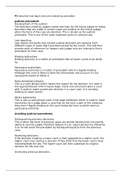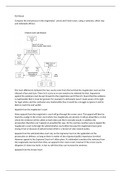Ellieewaltonn
I have just completed my level 3 extended diploma in public services achieving D*D*D*. You can check you criteria against mine in the descriptionbefore you buy the assignment.
- 9
- 0
- 2
Community
- Followers
- Following
10 Reviews received
14 items

unit 15 PUBLIC SERVICES
this is a big unit hence the price p1 p2 p3 p4 p5 p6 p7 m1 m2 m3 m4 m5 d1 d2 ACHIEVED DISTINCTION.
- Package deal
- • 3 items •
- unit 15 p1 p2 p3 m1 m2 • Essay
- unit 15 p4 p5 m3 d1 • Essay
- unit 15 p6 p7 m4 m5 d2 • Essay
this is a big unit hence the price p1 p2 p3 p4 p5 p6 p7 m1 m2 m3 m4 m5 d1 d2 ACHIEVED DISTINCTION.

unit 22 PUBLIC SERVICES
p3 p4 p6 m3 VALUE OF 35 POUNDS
- Package deal
- • 5 items •
- Unit 22 p6 m3 • Essay
- unit 22 p4 • Essay
- unit 22 p3 • Essay
- unit 22 m2 • Essay
- unit 22 p5 m2 • Essay
p3 p4 p6 m3 VALUE OF 35 POUNDS


unit 22 p5 m2
p5 describe how the criminal trial process works for both a summary and an indictable offence m2 compare the trial process in the magistrates’ courts and Crown court, using a summary, either way and indictable offence
- Book & Paket-Deal
- Essay
- • 4 pages •
p5 describe how the criminal trial process works for both a summary and an indictable offence m2 compare the trial process in the magistrates’ courts and Crown court, using a summary, either way and indictable offence


unit 22 m2
m2 compare the trial process in the magistrates’ courts and Crown court, using a summary, either way and indictable offence
- Book & Paket-Deal
- Essay
- • 2 pages •
m2 compare the trial process in the magistrates’ courts and Crown court, using a summary, either way and indictable offence


unit 22 p3
Know how legal rules are created by precedent Judicial precedent: development of the system; law reporting; binding authorities; persuasive authorities; ratio decidendi; obiter statements Avoiding judicial precedents: distinguishing previous decisions; reversing decisions; overruling previous decisions; practice statements
- Book & Paket-Deal
- Essay
- • 2 pages •
Know how legal rules are created by precedent Judicial precedent: development of the system; law reporting; binding authorities; persuasive authorities; ratio decidendi; obiter statements Avoiding judicial precedents: distinguishing previous decisions; reversing decisions; overruling previous decisions; practice statements


unit 22 p4
Understand how the criminal trial process works. Categories of criminal offence: summary offences; triable either way offences; indictable offences Bail: police powers to grant bail; the Bail Act 1976 and Criminal Justice Act 2003; right of defendant to bail; conditional and unconditional bail; restrictions on bail; breaches of bail; right to liberty under Human Rights Act 1998 Access to legal advice and representation: duty solicitors; funding and representation for defendant; legal aid; right...
- Book & Paket-Deal
- Essay
- • 3 pages •
Understand how the criminal trial process works. Categories of criminal offence: summary offences; triable either way offences; indictable offences Bail: police powers to grant bail; the Bail Act 1976 and Criminal Justice Act 2003; right of defendant to bail; conditional and unconditional bail; restrictions on bail; breaches of bail; right to liberty under Human Rights Act 1998 Access to legal advice and representation: duty solicitors; funding and representation for defendant; legal aid; right...


Unit 22 p6 m3
P6 outline the powers of the courts in sentencing offenders, using one example of a summary offence and one indictable offence. Sentencing powers: magistrates’ court sentencing powers and limitations; committal from magistrates’ courts to Crown court for sentence; Crown court sentencing and restrictions; range of sentences available. M3 explain the grounds for appeal from the magistrates’ courts and the Crown court in England and Wales. Appeals from criminal courts: appeals from magistrat...
- Book & Paket-Deal
- Essay
- • 3 pages •
P6 outline the powers of the courts in sentencing offenders, using one example of a summary offence and one indictable offence. Sentencing powers: magistrates’ court sentencing powers and limitations; committal from magistrates’ courts to Crown court for sentence; Crown court sentencing and restrictions; range of sentences available. M3 explain the grounds for appeal from the magistrates’ courts and the Crown court in England and Wales. Appeals from criminal courts: appeals from magistrat...

unit 15 p6 p7 m4 m5 d2
unit 11 p3
unit 15 p6 p7 m4 m5 d2
Unit 22 p6 m3
Unit 1 Government and policies P5 M3 D2